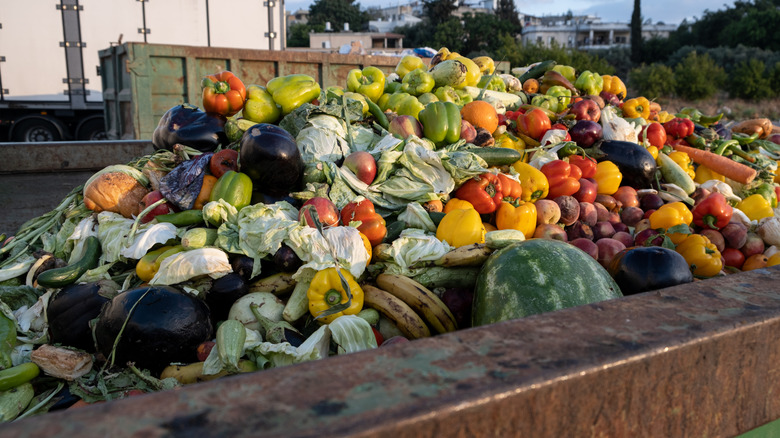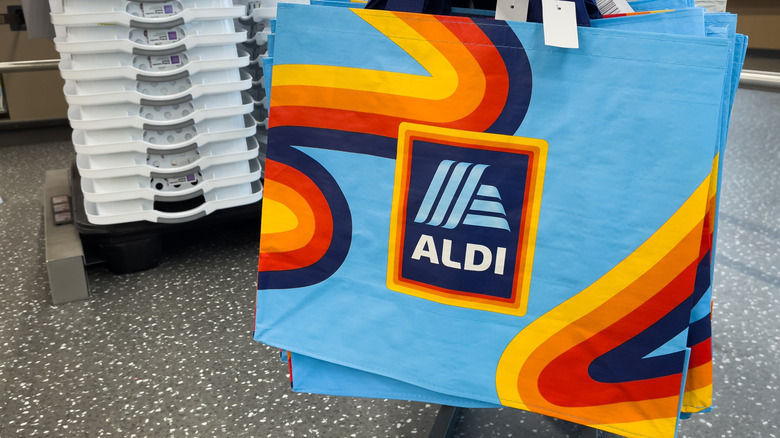This Is What Aldi Does With Its Leftover Food Products
The food waste problem in our modern food system is a staggering one. The USDA reports that somewhere in the neighborhood of 40% of all food produced or grown winds up in the landfill. While individuals can take steps to reduce our own food waste, a major retailer beloved for being the cheapest grocery store in America is tackling it in a more systemic way.
That's Aldi, who publishes a detailed waste and sustainability page on its website laying out its plan to reduce the waste of leftover, unsold products so they don't just end up trashed, as is too often the case. Any leftover food products not purchased by their sell-by date at Aldi, according to its website, is funneled through recycling, donation, and repurposing programs. The company aims to keep 90% of operations waste out of landfills by 2025. By 2030, the store promises to reduce its total food waste by 50%. These goals are achieved in large part by preventing food waste in the first place, with Aldi's scant-by-comparison stocked shelves and a focus on reducing excess. Any food products that are leftover, Aldi makes a concerted effort to keep out of landfills and donate to the hunger relief organization, Feeding America. Food that can't be donated is organically recycled (think composted) or repurposed as animal feed.
Aldi's approach begins with prevention of waste
We'd like to think, if we think about it at all, that all that food nearing or past its sell-by date on our grocery store aisle gets donated to food banks or the like. The reality is far more grim. As you might imagine, much of the food lining shelves doesn't fly off those shelves by the date its stamped with, and much of this unfortunately ends up rotting in a landfill. Not only is the food wasted, but these rotting heaps attracts pests and, more troublingly, contribute to the climate crisis as the decomposing food releases methane gases. When food fills landfills, it's the worst case of a bad scenario — a composting solution would be far better, as Aldi prioritizes.
Much of this problem starts with our expectations for what a modern supermarket should look like: Packed shelves brimming with more options than we could need and more food than stores can possibly sell. While most retailers intentionally overstock shelves to achieve this, Aldi bucks the norms by intentionally keeping shelves relatively bare-boned and simple. When Aldi restocks its shelves, they do so consciously — with minimal product choices and no fancy displays. Not only does this no-frills approach help keep prices lower for consumers, it translates to less waste from the get-go.

